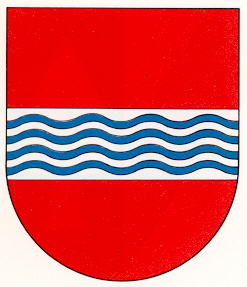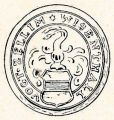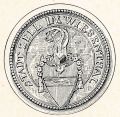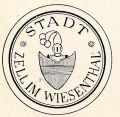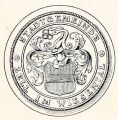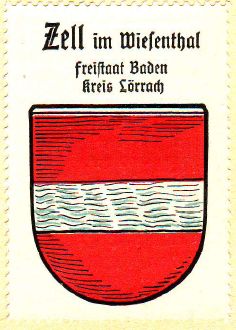Zell im Wiesental: Difference between revisions
Jump to navigation
Jump to search
Knorrepoes (talk | contribs) m (Text replacement - "↵{{media}}↵↵'''Literature''': Huber, 1984↵↵[[Category:German" to " '''Literature''': Huber, 1984 {{media}} [[Category:German") |
Knorrepoes (talk | contribs) m (Text replacement - "{{media}}" to " {{de1}} {{media1}}") |
||
| Line 41: | Line 41: | ||
[[Civic Heraldry Literature - Germany|'''Literature''']]: Huber, 1984 | [[Civic Heraldry Literature - Germany|'''Literature''']]: Huber, 1984 | ||
{{ | |||
{{de1}} | |||
{{media1}} | |||
[[Category:German Municipalities Z]] | [[Category:German Municipalities Z]] | ||
Revision as of 11:49, 26 December 2022
This page is part of the German heraldry portal Deutsche Wappensammlung |
Heraldry of the World |
|
German heraldry:
|
Selected collector's items from Germany:
|
ZELL IM WIESENTAL
State : Baden-Württemberg
District (Kreis) : Lörrach
Additions : 1972 Riedichen; 1974 Adelsberg, Gresgen; 1975 Atzenbach, Mambach, Pfaffenberg
| German | In Rot ein silberner Balken mit vier blauen Wellenlinien. |
| English | im Wiesental No blazon/translation known. Please click here to send your (heraldic !) blazon or translation |
Origin/meaning
The arms were adopted in 1898.
The arms combine the arms of Austria with the waves symbolising the Grosse Wiese river. Zell was an Austrian possession for many centuries until 1803.
The city was ruled by the Lords of Schönau as vassals. The oldest seal dates from 1671 and thus shows the arms of Austria, with the crest of the Lords of Schönau. The latter disappeared in the early 20th th century and in 1898 the waves were added.
The seals of the city:
| The arms by Hupp in the Kaffee Hag albums +/- 1925 |
Literature: Huber, 1984


